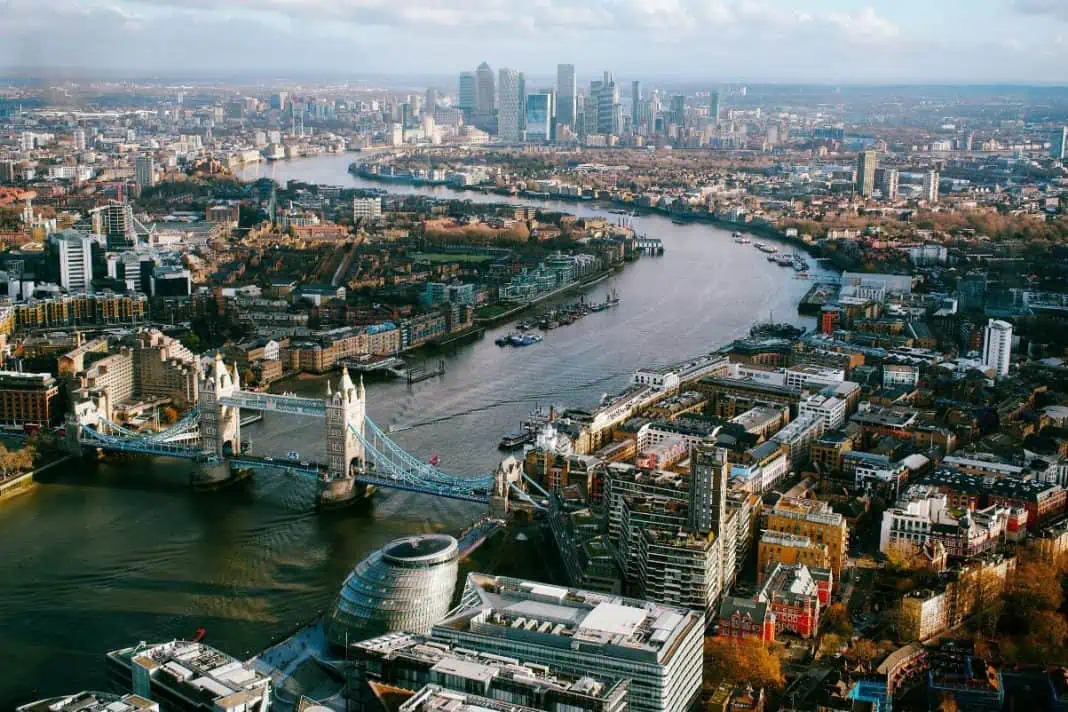Houlder has been commissioned by Uber Boat by Thames Clippers, to assist the company with practical guidance and experience as it moves ahead with plans to add hybrid vessels to its fleet. Constructed by Wight Shipyard, the battery-powered high-speed passenger vessels will be the first of their kind in the UK and will recharge using biofueled power at charging sites outside central London. The first boat is due to be delivered in late-2022, to serve the river operator’s extensive route. The central London zone between Tower and Battersea Power Station piers will be operated solely on battery power.
Houlder’s long history with Uber Boat by Thames Clippers includes the 2019 construction and launch of the Venus Clipper – a conventional high-speed vessel. Since then, the design has evolved to accommodate the hybrid system as Uber Boat by Thames Clippers remains at the forefront of innovation for the river marine sector. Houlder provided technical support to Uber Boat by Thames Clippers during development of the new vessels’ design and specification, working alongside the shipbuilder, Wight Shipyard, and their Naval Architects One2three.
The River Thames features a number of constraints applicable to the boats operating on it. The Thames barrier and the bridges in central London impose length, breadth and air draught constraints while the shallow waters in the upper reach restrict the vessels’ draught. The addition of batteries substantially increases the weight of a vessel, and their volume also requires alterations to the layout of many of the systems onboard, all of which must be balanced against the dimensional and operational constraints. Working with Uber Boat by Thames Clippers and the shipbuilder, Houlder brought practical guidance to ensure that the vessel specification and the means of verification meet the high standards required of Uber Boat by Thames Clippers vessels.
Moving into the construction phase, Houlder will work to ensure a high quality and timely delivery, with guidance and oversight during the build of these new vessels, ensuring they meet the design specification. The team will also provide Uber Boat by Thames Clippers with advice on the technical and regulatory aspects of the project, including the operational complexities of working with battery technology. The Houlder team will use its experience of the local regulation, knowledge of the Thames, and operational and technical expertise to ensure a smooth process from concept to delivery.
David Wing, Ship Design & Engineering Director, Houlder, said: “We’re thrilled to be working with Uber Boat by Thames Clippers on this project. As a leading design and engineering consultancy with sustainability at our core, Houlder is proud to be contributing to the delivery of the first high-speed vessel in London to feature battery power, and we commend Uber Boat by Thames Clippers on paving the way for the greening of the Thames.”
Commenting on progress made so far, Sean Collins, Co-Founder and CEO of Uber Boat by Thames Clippers, said: “The development of battery technology in recent years has presented us with an opportunity to take the first major steps to meet our future environmental vision. As a business, we continue to embrace the emerging technological advances that will see the ongoing development of our fleet and infrastructure, thereby supporting a sustainable future in our industry. Houlder’s invaluable input has facilitated the continued success of our relationship with Wight Shipyard, with whom we have a long history of working.”
Houlder has extensive experience in hybrid vessel design and recently worked with the Isle of Man Steam Packet Company (IoMSPC), acting as technical advisor in the design and build of its latest battery hybrid ferry. Houlder was also involved in the design and build of the RRS Sir David Attenborough alongside NERC and Cammell Laird.












